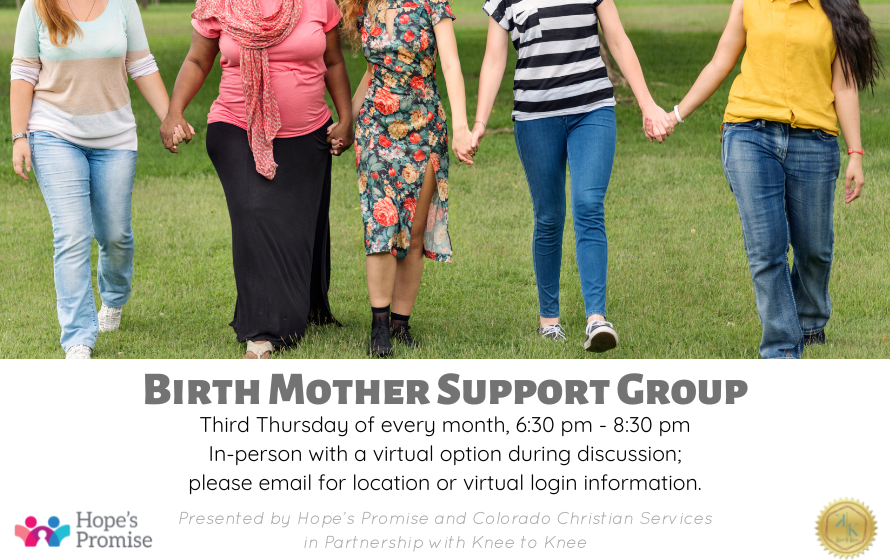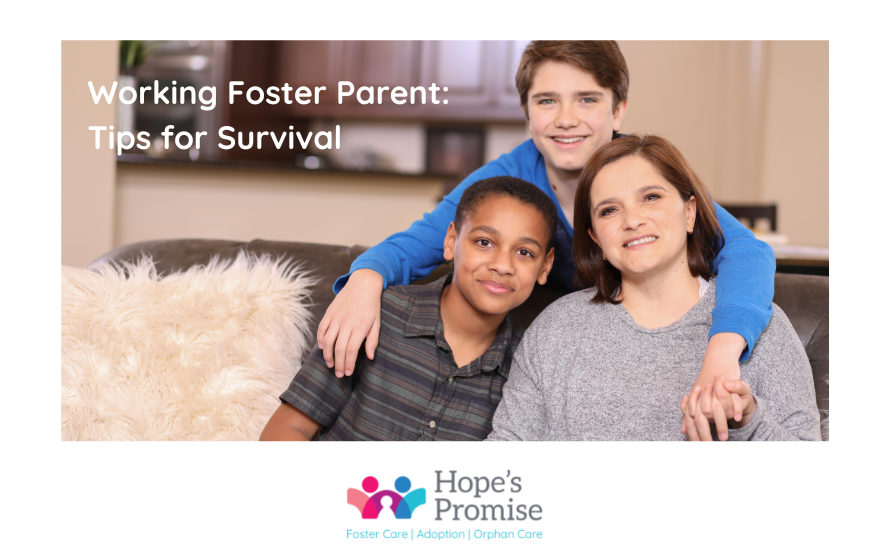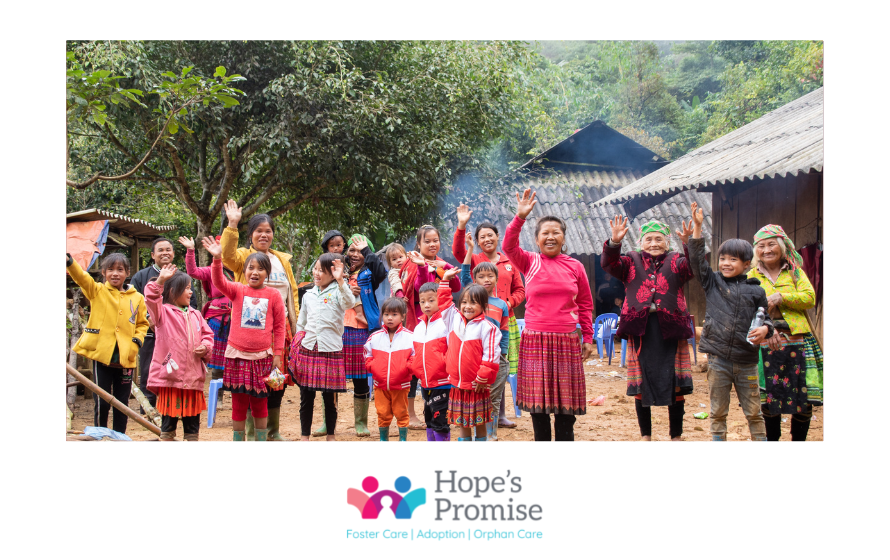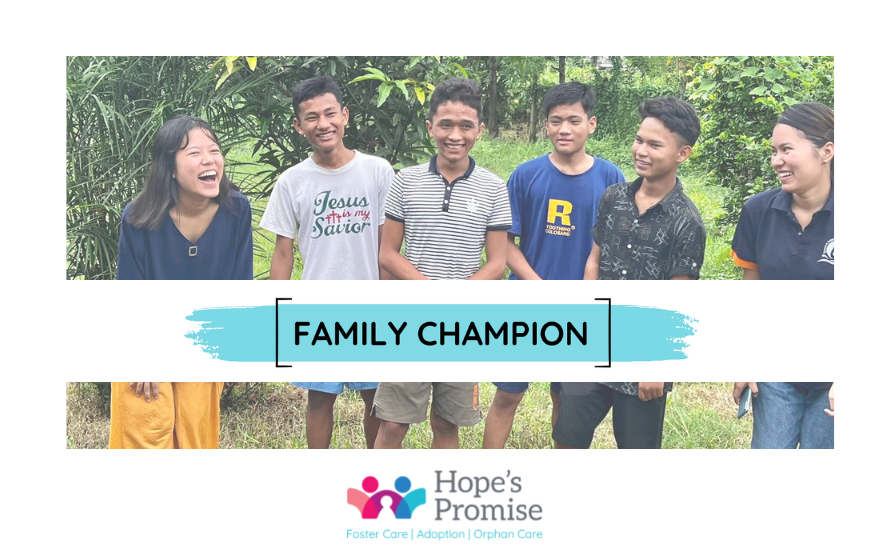Blog
2023
What You Should Know About the Adoption Tax Credit
With Tax Day less than a week away (April 18th) it’s important for adoptive parents to know about the Adoption Tax Credit. Our Friends at the National Council For Adoption have the best resources and we want to share them with you!
2023
A Lifetime of Healing: Caring for Birth Moms
At Hope’s Promise, we never stop caring for birth moms. Once a birth mother has placed with an adoptive family, we believe in providing continuing opportunities for healing, growth, and well-being.
2023
Working Foster Parent: Tips for Survival
Shared blog by FosterMama
At Hope’s Promise, we want to provide our amazing foster parents (and potential foster parents) with as many resources as possible so that they feel supported and cared for. This blog is full of great ideas for working foster parents.
—
When we first considered becoming foster parents, I joined foster Facebook groups to learn everything I could about the process. I quickly noticed that many foster families have a stay-at-home parent. I did worry a bit—my career is important to me and I wasn’t really willing to give it up. Plus, it would not make financial sense for me to leave my job. Similarly, my husband had recently graduated with his Doctorate so he was also not at a point where he would be up for staying home full-time. So could we do it with two careers?
Read more here.
2023
Hope and Transformation in Vietnam
Somehow, we were lucky enough to visit the ends of the earth and find the same Jesus who works in our own hearts bringing hope and transformation to the Hope’s Promise Orphan Care program in Vietnam.
2023
Be a Family Champion
Child Sponsorship Re-imagined by Hope’s Promise
Hope’s Promise worked hard in 2022 to identify a new model of partnership designed specifically for the needs of an orphaned child’s heart. Early in the year, we asked current child sponsors to imagine a new kind of “sponsorship” that stays behind the scenes, invisible to the child but nonetheless essential to the family’s success.
We asked partners to consider with us global orphan care research that reveals a child’s greatest need when he or she loses one or both parents – God’s love expressed through a new caregiver and family. We asked partners to consider that sometimes a relationship with someone far away, especially someone who is known to support them financially, can distract a child from trusting and attaching to their family.
And we asked for feedback. Overwhelmingly, partners responded that they want what is best for the kids. The one concern we heard expressed is that our partners want to maintain connection. They want to pray for families and kids by name. They want to know that your generosity is impacting real people in real ways.
So, imagine becoming a “Family Champion,” someone who upholds, advocates, supports, and speaks up for orphaned and vulnerable children. Although Hope’s Promise children may never know the names of Hope’s Promise’s “Family Champions,” our partners are no less a catalyst for transformation than when we called them a “Child Sponsor.”
As we transition to the “Family Champion” model:
- We are committed to funding the kids in our program, so even without a child sponsorship program, we will never cut a child due to lack of funding without first letting all our ministry partners know about the situation and inviting intervention.
- Every donor is considered a “Family Champion.”
- Family Champions choose a specific country to give to, with the option of “following” a specific family.
- “Following a family” means Family Champions receive an initial information packet about a specific family in the country they choose and at least one update per year. We will tag current child sponsors to follow the family of their sponsored child.
- Family Champions will receive at least two “Impact Reports” per year, highlighting kids and families in the country where they choose to partner. Family Champion “followers” will also receive at least one report per year about the specific family they follow.
- We will continue to offer opportunities to send special gifts with teams to deliver to families.
- Family Champions can still write a note of encouragement to the families they “follow” or to a family in general to be chosen by the Country Coordinator. We forward emails to in-country staff for delivery.
The big change is that the kids won’t know Family Champions are sending money for their benefit. Instead, they will credit their caregivers and families for taking care of them by partnering with their country’s Hope’s Promise ministry. Family Champions will strengthen Hope’s Promise kids’ trust and attachment with the people God has first and foremost appointed to express His love to them. Family Champions will give orphaned and vulnerable children what they need most.
Learn more here: https://www.hopespromise.com/become-a-family-champion/




